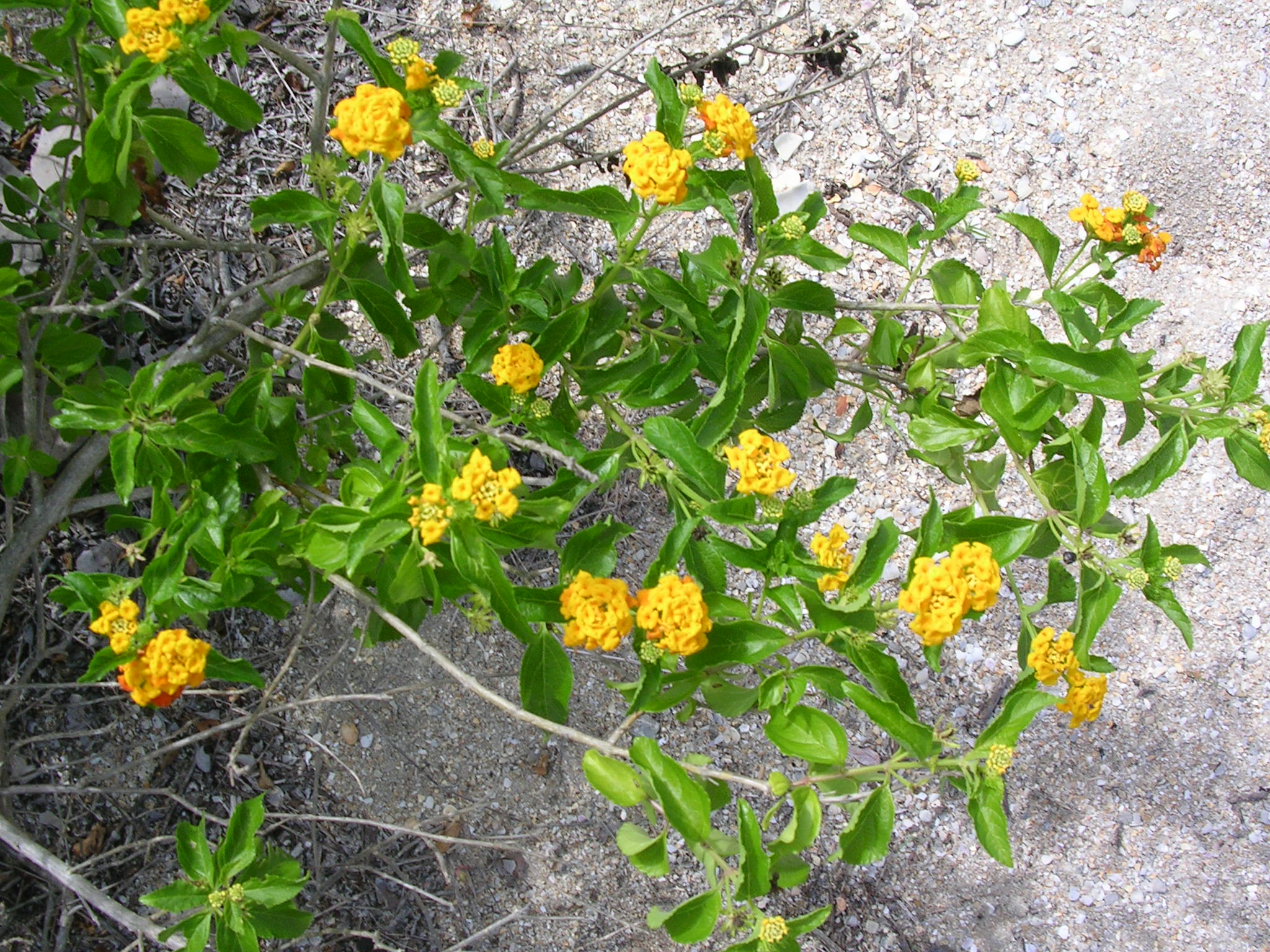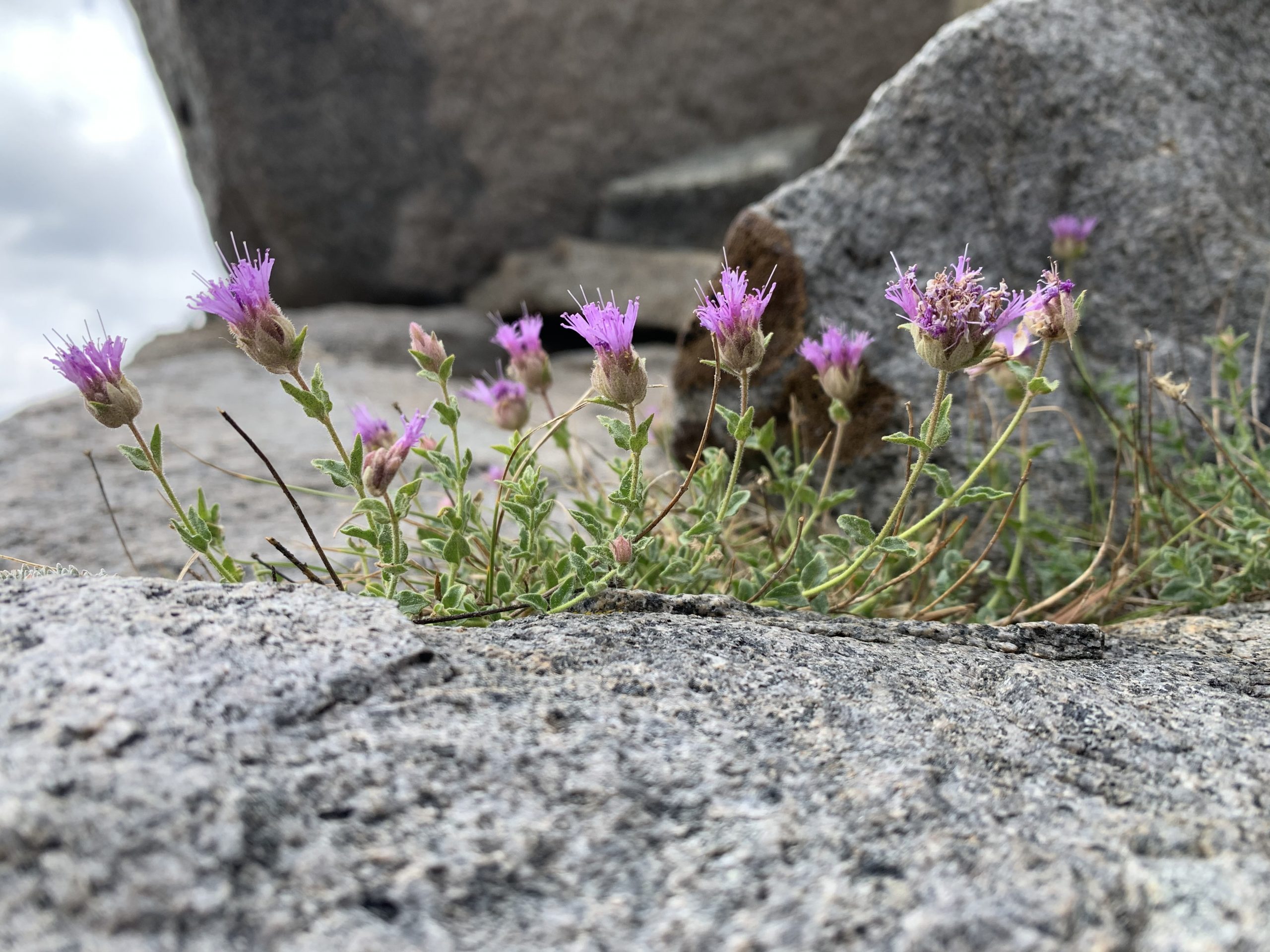Updates from the National Collection
The National Collection, a collection of the nation’s rarest plants in the care of the CPC Participating Institutions, saw another large growth spurt this year. The addition of 160 new types of plants brings the total number of plants safeguarded in the collection to 2,216. Several projects account for increases in the National Collection: the California Plant Rescue project has captured many the rarest species in the state, the Florida Plant Rescue is gaining momentum, and collections for the U.S. Forest Service have added rare species to gardens throughout the network. Even the IMLS Seed Longevity Study added species that were collected this year or collected opportunistically during field excursions.
Some New Additions:
Florida lantana (Lantana depressa var. floridana)
While working at Bill Baggs Cape Florida State Park to collect fresh seed of the beach star sedge (Remirea maritima) for the IMLS Seed Longevity Study, Fairchild Tropical Botanic Garden’s team also bagged the park’s Florida lantana (Lantana depressa var. floridana) population. Each of the inky metallic blue fruits of this coastal dweller contains a single seed. The shrubby plant with bright yellow flowers is found only on the east coast of Florida and is state listed as endangered. Now, at least one seed collection protects this globally imperiled plant for the future!


Sweet-smelling Monardella (Monardella beneolens)
The seed collection of sweet-smelling monardella (Monardella beneolens), a California endemic, in October was a hard-earned success for California Botanic Garden’s Senior Conservation Botanist Duncan Bell. Initial attempts to conserve seed of the species in 2020 were thwarted. The first population targeted proved too small for a collection, and the largest population (100 individuals!) was successfully scouted but later barred from entry due to wildfires at collection time. This year, wildfire again threatened the possibility of collection, but the team managed to get to the population a few days before the first snowfall. Duncan and team endured a 4-wheel driving adventure – crossing a river early in the morning and having the water immediately freeze on the truck – and hiked up to 12,000 feet elevation, where they found the sweet smell of success with the aptly named sweet-smelling monardella.